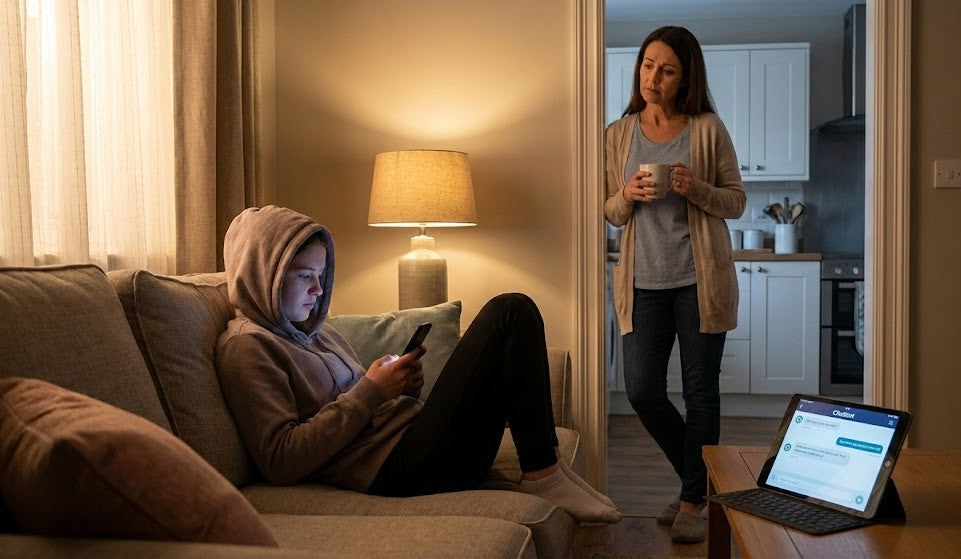Whenever there is an element of trading, buying, or selling, the risk of getting scammed is present - especially in gaming.
Most gamers have either been scammed themselves or know someone who has. Many people fall victim to so-called trust trades, where players must trust that the other person will uphold their end of the deal. Unfortunately, this trust is frequently broken.
To you it might not seem like a big deal, but to your child it can be a very hurtful experience. Having your trust broken and getting cheated, maybe for the first time, can have a strong and devastating impact. How we handle this experience matters.

Your child is scared, disappointed and possibly ashamed in these moments. They are looking for support not scolding.
Stay calm
It's crucial to remain calm and not express anger when you discover your child has been scammed, even if that is your initial instinct. When we feel upset it’s often because we are scared for our child. This is normal, but take a breath and try to stay calm.
Your child is scared, disappointed and possibly ashamed in these moments. They are looking for support not scolding. Remember that scammers can deceive anyone, regardless of age or experience.
Console first and then find out what happened.
Many people - adults and even professional gamers - fall victim to scams. Scammers are skilled at manipulation, and recognizing a scam can be challenging.
By being understanding you will help your child process their emotions, relax and be able to explain more honestly and clearly what happened so you can find a solution together.

Comfort them after the scam
Most people will be very distressed by such an experience. When trust is broken, it can be painful, especially for children.
They might feel ashamed for being taken advantage of, angry at the unfairness, and deeply upset for not getting what they wanted from the trade.
It's important to listen to your child and acknowledge their reactions and feelings. Reassure them that it’s not wrong to trust people and believe in the goodness of others; the wrongdoing lies with the scammer.
Talk about critical thinking and caution in the future
Once things have calmed down you can talk about ways to be careful and more critical in the future. Discuss the reality that scams happen to many people, not just children.
Help your child understand that it can be hard to recognize a scam and that being cautious is essential. Take a breath before making a trade or speak to an adult first if they are unsure.
A good rule of thumb is:
if it seems to good to be true, it probably is.





